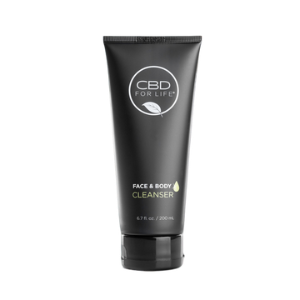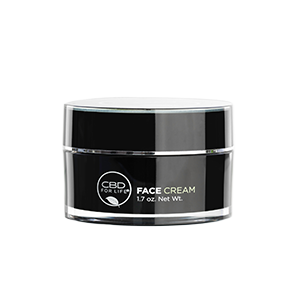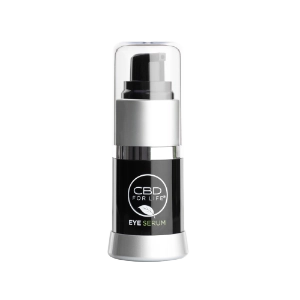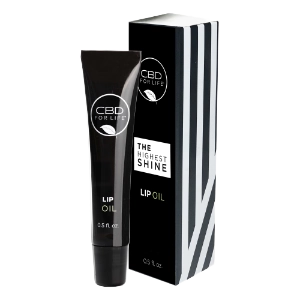May 27, 2025
The One Big Beautiful Bill Act: A Wild Ride for the U.S. CBD & Beauty Industries
One Big, Beautiful, and Quite Confusing: In late May 2025, House Republicans passed the “One Big Beautiful Bill Act” (H.R.1) by a razor-thin margin. The 1,116-page tax-and-budget package (yes, you read that right) promises hefty tax cuts and extended farm subsidies – and a whole lot of confusion. Wary industry observers note that, as written, the bill would add over $3 trillion to the deficit in the next decade, while slashing programs like Medicaid and SNAP in regressive ways. In other words, it’s big, it’s bold – and it’s guaranteed to give both parties plenty of talking points (and social media memes).
How Does This Affect CBD & Hemp Beauty Products?
Put simply: mostly indirectly. The bill itself makes no direct mention of cannabidiol (CBD) or hemp, but it does extend the existing 2018 Farm Bill through 2031. That means hemp (and legal, low-THC cannabinoids) remain federally “legal” for now, under the same rules as before. In practice, the status quo sticks around, which is a mixed blessing. On one hand, American hemp farmers and makers of CBD oils, gummies, and creams won’t suddenly find their crops re-classified as illegal marijuana overnight. On the other hand, the regulatory limbo continues: the FDA still hasn’t approved CBD as a dietary supplement or food additive, so companies must navigate a patchwork of state laws while hoping federal rules don’t change dramatically.
The farm bill extension came as a relief to some growers and ag lobbyists (The American Farm Bureau hailed “modernized farm bill programs” and stable reference prices), but hemp-specific reforms are largely on hold. Last year’s proposals – like Rep. Mary Miller’s attempt to narrow hemp’s definition or Sen. Ron Wyden’s Cannabinoid Safety and Regulation Act – didn’t pass. That leaves hemp entrepreneurs fretting about a slow-moving Congress. Will the 119th Congress try again on a standalone hemp bill, or cram something into future reconciliation? Who knows. (For reference: a related tax-bill rumor said House Budget Chair Jodey Arrington might try to sneak a fix to IRS Code Section 280E into this package – but as of now, no CBD-saving tax break made the cut.)
Regulatory Rollercoaster: A Li'l Bit Federal, a Lotta Bit Local
Unpredictable FDA: On the federal side, the FDA is still playing hard-to-get with CBD. The agency continues to insist that CBD can’t lawfully be added to foods or supplements without approval (apart from one rare epilepsy drug). In fact, even the FDA’s veterinary arm is busy gathering data on CBD use in pets right now, which only highlights how cautious regulators remain. So far, H.R.1 doesn’t change any of that – the FDA’s promise to crack down on illegal CBD claims remains in force. (Don’t be surprised if the new DEA head, when confirmed, keeps schedule-III rescheduling on the back burner too.)
State-Level Wild West: Meanwhile, states are doing their own thing. Just look at recent headlines: some places are banning popular hemp products outright. In Ohio, for example, lawmakers considered a bill that would force almost all hemp products (those with any intoxicating THC) out of CBD shops and into pot dispensaries. As one CBD store owner warned, that would wipe out 90% of the products they stock and send shoppers to black-market sites. (Bravo to any state legislature for finding a way to be “pro safety” by making everything less safe.) And in Texas, legislators are eyeing bans on delta-8, delta-10, THCA and other “synthetic” cannabinoids – weither which way they choose, you can still fine premium products at CBD For Life.
In short, CBD brands face a regulatory funhouse: federal status quo (for now), plus aggressive state experiments. If Congress were to include any new hemp language in H.R.1 (say, extending the USDA hemp rules or clarifying definitions), we’d be the first to hail it. But since the omnibus bill didn’t explicitly tackle hemp beyond the farm bill extension, small growers and beauty brands must continue adaptive strategies – labeling carefully, lobbying hard, and watching every single state bill.
Commerce & Creativity: How Brands Might Pivot
For CBD and hemp-beauty businesses, H.R.1’s main effects are indirect but real. The $3 trillion spending party means higher deficits and likely higher interest rates on everything (home loans, credit cards, your fancy organic moisturizers) in the years ahead. Consumer wallets may tighten if deficits translate to inflation – or, if Republicans get their way, some tax relief. The one thing we do know: big spending cuts in food stamps and Medicaid might leave fewer folks splurging on $60 CBD bath bombs.
On the flip side, farm subsidies get extended through 2031, which could help large hemp producers survive. But small brands might still feel squeezed by state regulations (see above) and the FDA’s silence. Either way, the competitive landscape is heating up. Established players like Cornbread Farms (North Carolina hemp producer) or cbdMD will be monitoring every move. If, say, future amendments sneak in tax breaks or R&D credits for “wellness agriculture,” branding wizards will jump on the hype train. If not, expect nimble companies to diversify – offering new cannabinoids (CBG, CBN, etc.), designer formulations, and trendy delivery methods (sprays, gummies, serums) to keep consumers intrigued.
Bottom line for businesses: Don’t count on Congress to bail you out. The only immediate “new law” here is more of the old farm bill, which does lock in current hemp rules through 2031. So market-savvy brands should focus on innovation (clean labels, evidence-based wellness claims within legal limits, natural ingredients) and contingency plans for regulatory changes. (Pro tip: if Uncle Sam ever did allow CBD in cosmetics or supplements, those “beauty brand” skincare lines would skyrocket. But until then, it’s door-knocking state legislators and nurturing Instagram followers.)
Consumer Trends: The CBD Beauty Boom
Despite the political ping-pong, consumer demand for CBD continues to explode. A new market report found that the global hemp-derived CBD market was already about $8.3 billion in 2023 and could skyrocket to $46 billion by 2034 (that’s ~17% CAGR). Not bad for a plant that, until 2018, was still classified with heroin. Importantly, the report highlights a “rising interest for CBD’s use in cosmetics and other personal care products” and notes that consumers are “growing more accepting of CBD” in their wellness routines. That means CBD face masks, lotions, oils and dietary supplements aren’t a fad—they’re the next generation of clean beauty.
What does this mean for you, the savvy shopper? For one, you’re part of a tidal wave. Brands are racing to meet demand with things like broad-spectrum CBD serums, calming sleep tinctures, and organic CBD tea blends. Even if Congress mulls more oversight, the momentum is on the consumers’ side: people want plant-based, "wellness-oriented" self-care. H.R.1’s content on AI (a federal ban on state AI rules) may have grabbed headlines, but at home, folks are buzzing about niacinamide and hemp antioxidants. (Not entirely unrelated: California lawmakers just fumed that H.R.1 would forbid their strict AI rules, arguing states should regulate technology. You can bet CBD brand founders wish they had half as much leverage in D.C.)
A Bipartisan Chuckle
If you’re looking for an even-handed jab: here goes. The “big beautiful bill” is a miracle of modern Congress – it outruns even the politicians who wrote it. Republicans boast that it locks in Trump’s tax cuts and helps “main street” businesses, while Democrats point to bone-headed giveaways to the rich and cuts to the poor. Meanwhile, cannabis advocates wonder if anyone remembers that hundreds of state-legal hemp businesses exist. Both parties proved they can agree to spend trillions and extend farm subsidies (farm lobby is applauding from a glittering hay bale), but they sure can’t manage a one-page fix for CBD.
One ironic footnote: among the bill’s cheerleaders was the National Cattlemen’s Beef Association, praising investments in “cattle health”. But imagine: instead of beefing up cow hospitals, Congress could have eased rules so we could all pump even more hemp into our lattes. (Yes, we get it—beef talk sells votes, hemp talk doesn’t… yet.)
What Now? Don’t Wait, Shop Today!
Between now and whenever Congress turns its attention back to cannabis/hemp policy, savvy consumers should act. If regulators eventually loosen up on CBD ingredients, prices could jump or shelves could empty overnight. And if states keep banning whatever cannabinoid du jour, you might miss out on the trendiest wellness tools. So why wait for another 14 months of farm-bill extensions and committee wrangling? Treat yourself (legally) now. Top up your self-care stash with CBD oils, creams, and gummies that promise wellness vibes.
As we like to say: life’s too short for fuzzy rules. Get ahead of the curve by exploring the current legal CBD beauty & wellness market today. Check out favorites like hemp-infused serums and CBD bath bombs while they’re on sale – and definitely swing by CBD For Life at https://imp.i295461.net/o4PoKY to stock up before Congress makes things… even more interesting. Hurry, the One Big Beautiful Bill won’t wait, and neither should your next spa day.
SOURCES
- Congressional Budget Office (CBO) Cost Estimate for H.R.1 – May 2025
- CBO: Impact of H.R.1 on Medicaid, SNAP, and Other Mandatory Spending
- Congress.gov: H.R.1 - One Big Beautiful Bill Act
- House Budget Committee: Press Release on H.R.1 Passage
- Senate Ag Committee: Farm Bill 2024 Overview
- FDA Statement on CBD Regulation – Updated 2024
- FDA Center for Veterinary Medicine: CBD Use in Pets – 2024 Report
- Ohio Senate Bill 278 – Hemp and Cannabinoid Restrictions (2024)
- National Cattlemen’s Beef Association Statement on H.R.1 Farm Subsidies
- Global CBD Market Report 2024–2034 – MarketResearch.biz




